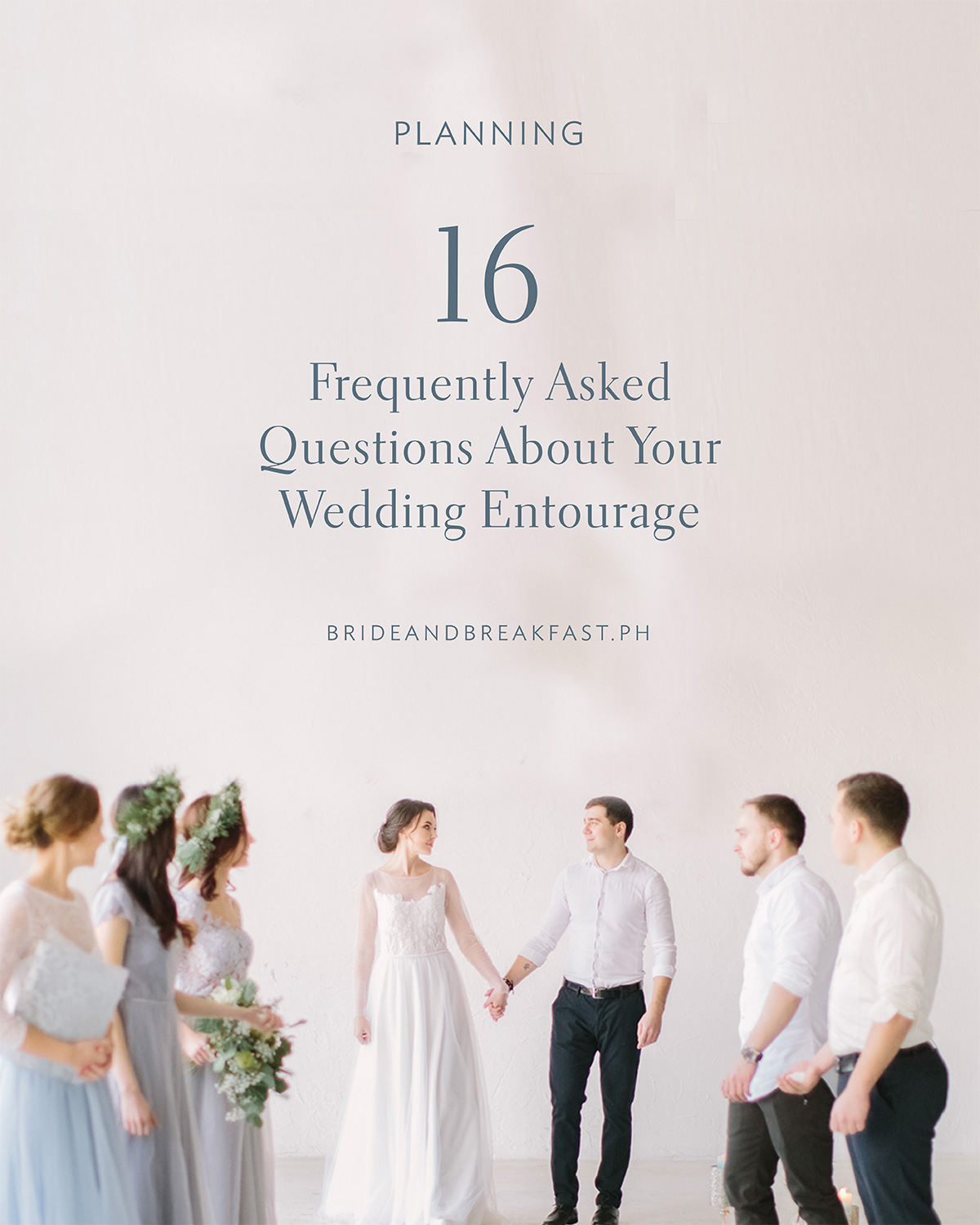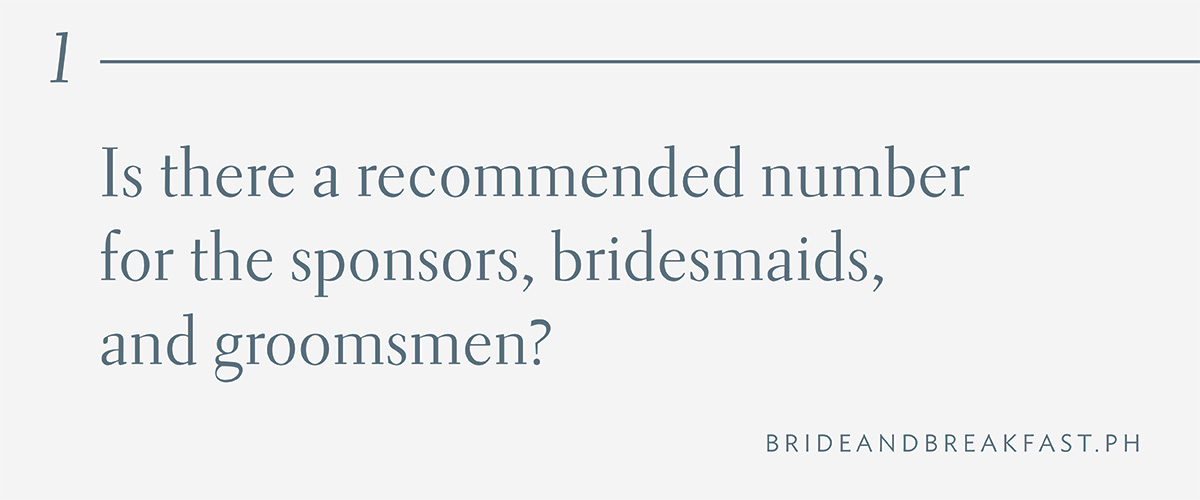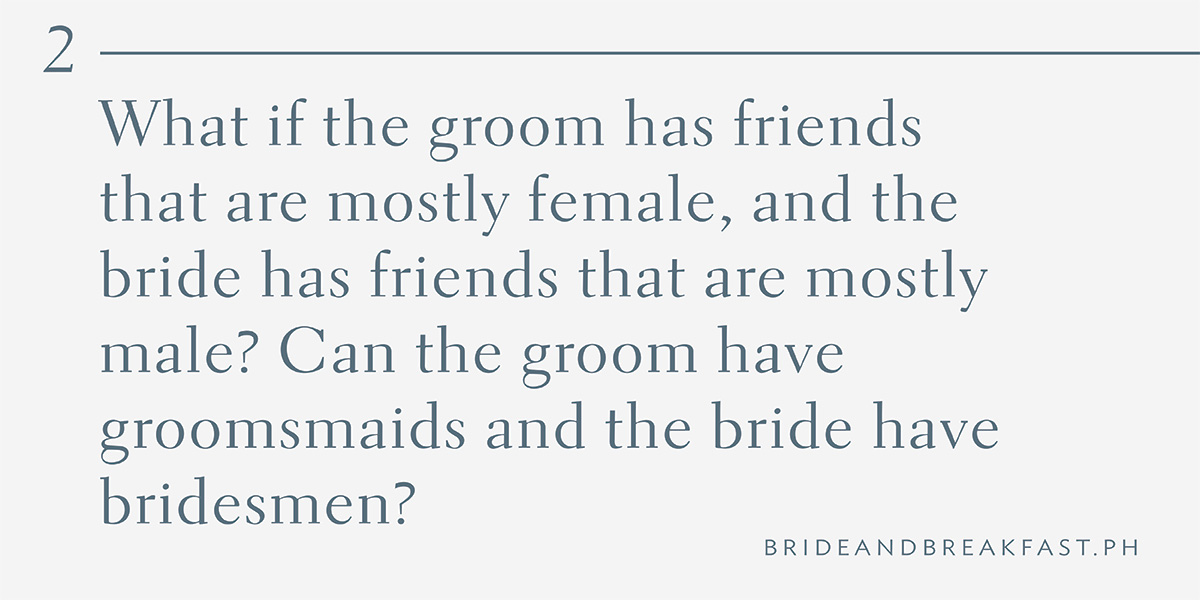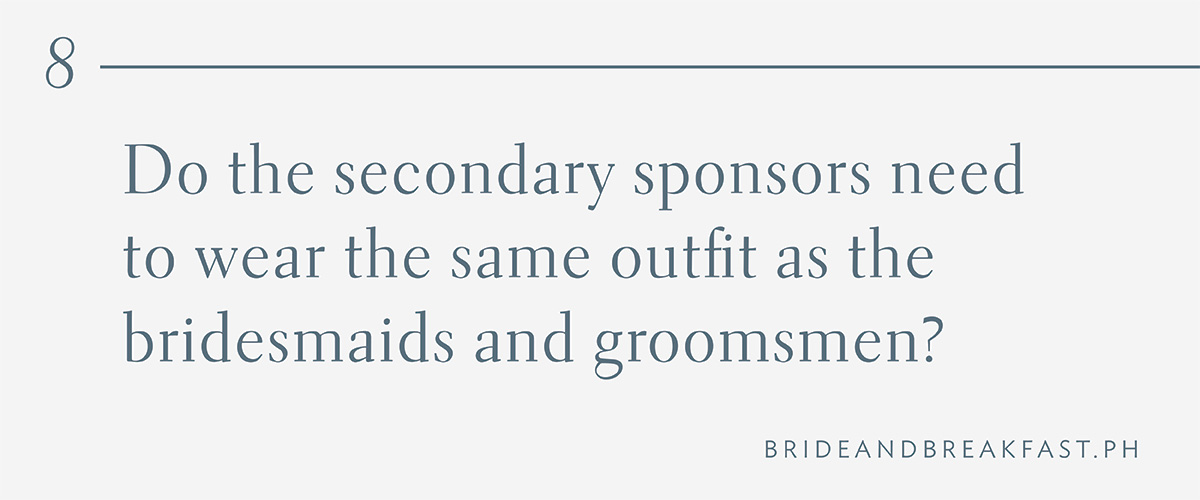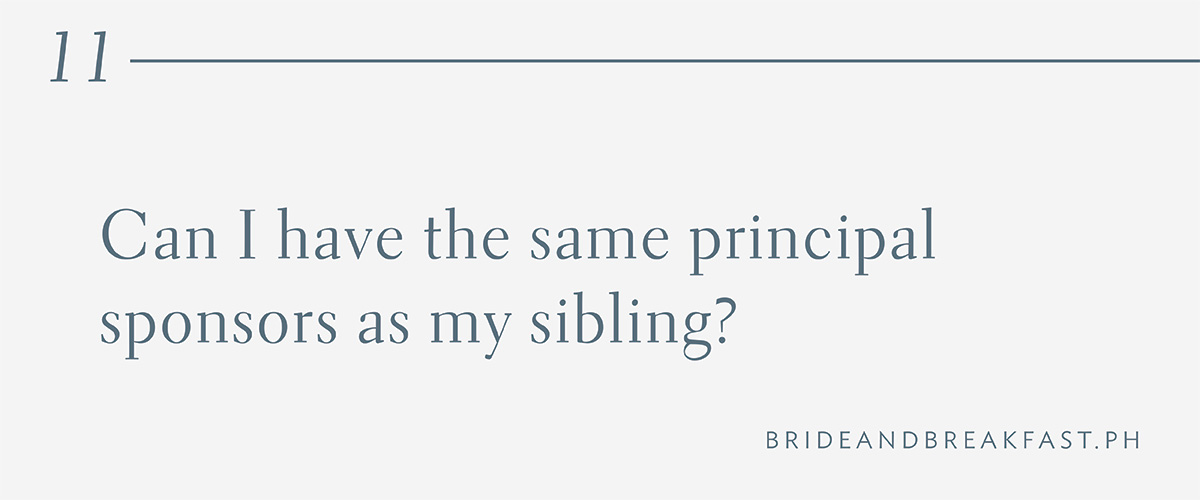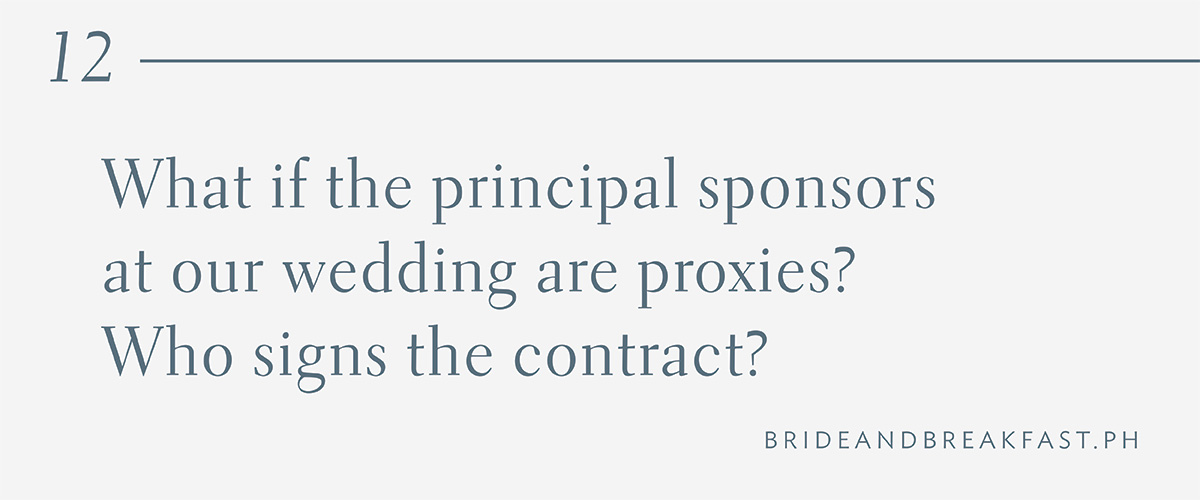One of the exciting (or stressful–depending on how you look at it!) parts of planning your wedding is choosing your entourage. From the bridesmaids and groomsmen, to your principal and secondary sponsors, even down to your bearers and flower girls, there are a lot of roles to assign and a lot of people to think about. But is there a general rule when it comes to your wedding party or can you make the changes you’ve always wanted to? Today, we’re answering 16 FAQs from the BNB community about your wedding entourage. Read on to see if we’ve answered all of your burning questions below!
Before anything else, the only rule you have to stick to when it comes to your entourage is having two principal sponsors who can sign the marriage contract at the end of the ceremony. When it comes to everything else, you can choose to customize or tailor some of the Western or Filipino traditions to make them your own. It’s your wedding after all, so you decide how it’s going to play out.
There’s actually no set number for the bridesmaids and groomsmen you can have, and it really depends on how many people you want in your bride and groom tribe. However, you might want to check with your church for a minimum or maximum number of principal sponsors. There are some churches that have a “maximum” number of ninongs and ninangs (e.g. five or six pairs), and every succeeding pair after that number has an added expense.
Are groomsmaids and bridesmen a thing? Our answer–if it’s not a thing, why not make it a thing! The important part is that you’re surrounded by the people you love and care about on your big day. Just because your friends are mostly male or female shouldn’t be a factor when it comes to choosing your entourage.
Yes! If you don’t have anyone in mind to be your secondary sponsors, your bridesmaids and groomsmen can certainly do double duty.
Don’t let a person’s civil status affect your decision to include them in your wedding party. Whether your friend or relative is single, married, or separated, all you want to think about when inviting someone to be a part of your entourage is how much they mean to you. (Besides, the only thing that will really change is the Maid of Honor‘s title–if she’s married, then her title becomes Matron of Honor.)
If you’re thinking about the old wives’ tale that secondary sponsors should only be single because if not, then they’ll most likely separate or divorce, we’re here to tell you to disbelieve that myth ASAP! Yes, your secondary (and even principal sponsors) can be married, so don’t let an old superstition affect your choices.
What if you want you veil sponsors to be both women, your candle sponsors to be both men, and your cord sponsors to be a man and a woman? Is that possible? Yes, it is. As long as they’re up to the task, choose who you want for the task that you want them to do.
There’s really no rule for how old your sponsors should be. However, given that the secondary sponsors do specific tasks like place the cord over the couple, pin the veil on the couple, and light the candles, you might want to choose children who will be able to do it. You don’t want a five year old to light a candle, do you? You can opt to assign certain tasks to kids, but make sure they’re age-appropriate.
Nope, don’t feel pressured to provide your secondary sponsors with the same outfits as your bridesmaids and groomsmen. Of course, if you want to, it’ll be seen as a generous gift, but you can also opt to just give them a color scheme to stick to. And don’t worry, they shouldn’t feel offended about it either.
As your principal sponsors will be signing the marriage contract–which is a legal and binding document–your principal sponsors should at the very least also be of legal age. As long as they’re older than 18 years old, then that should be fine. You might also want to think about people who will be guiding you on your marriage journey too. The reason most principal sponsors are more mature is because couples choose them due to their model marriage or their relationship with the person.
Yes, there’s no reason why they shouldn’t be. As long as they’re of legal age, then that should be alright.
Technically, it’s perfectly fine to have the same principal sponsors as someone else, but you might want to ask permission or give your sibling a heads up, you know, just to avoid some family drama.
If your chosen principal sponsors are abroad or can’t make it to the wedding, then you’ll usually get another friend or family member to act as proxy. But who signs the contract? If you know ahead of time that all of your original sponsors won’t be able to make it to the wedding, then we suggest adding the names of at least two proxies to the contract. However, if only some of them will be absent, then having two of your original sponsors sign the contract is good enough. One tip is to ask your principal sponsors about their attendance waaay in advance, just so you’re prepared! Take note also that some parishes do not allow proxies, so make sure to check beforehand.
Yup! Just like there’s no rule about men and women for the bridesmaids, groomsmen, and sponsors, the same rule applies to your bearers.
Yes! If kids can also be secondary sponsors, what’s to stop the adults from walking down the aisle with flowers, the arrhae, the bible, and the rings? You can even have an adult on standby if one of the assigned bearers or flower girls refuses to walk down the aisle.
Meaning, can the bearers and flower girls walk down the aisle first, followed by the bridesmaids and groomsmen, and then the principal sponsors? While there’s no particular rule about this, you might want to check with your church just in case. You can even ask your coordinator and wedding planner to check with them or give you some advice on the order as well.
Finally, the question that really puts everything into perspective–do you even need an entourage? If we go by the rule that you only need two principal sponsors to sign the marriage contract, then technically, you don’t actually need one. Of course, there are a lot of pros when it comes to having a wedding party, but don’t feel pressured to have one just because it’s the norm. Check out these reasons why it’s actually okay not to have one!










